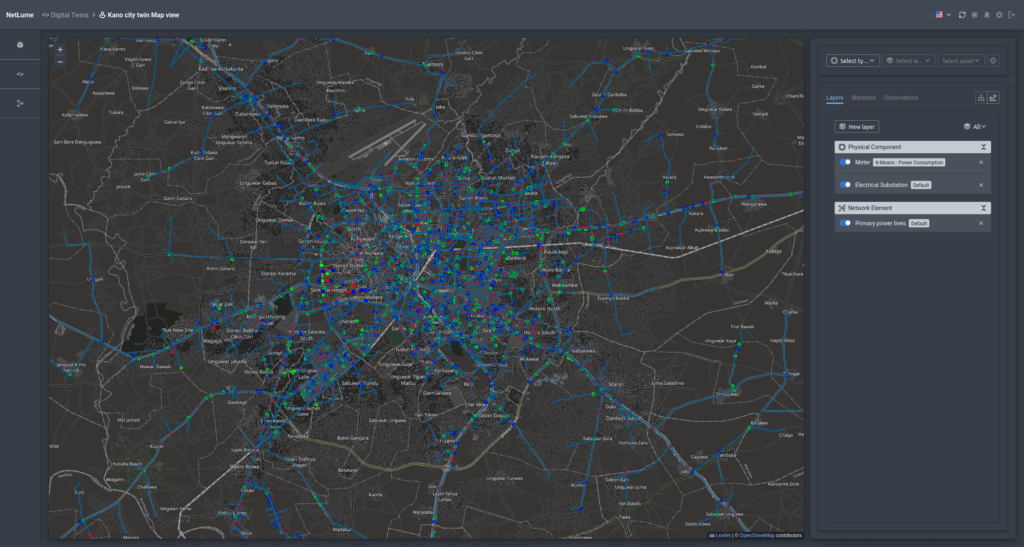
The future of transportation is undergoing a transformative journey, driven by the convergence of cutting-edge technologies. Among these innovations, the Internet of Things (IoT) is playing a pivotal role in reshaping how we move people and goods from one place to another. This article delves into the significance of IoT in the transportation sector and how NetLume, a pioneering IoT leader, is at the forefront of this revolution.
The IoT Revolution in Transportation
Understanding IoT in Transportation
IoT, or the “Internet of Things,” is a term that refers to the interconnected network of devices, sensors, and objects that communicate and share data over the internet. These devices can range from everyday appliances to vehicles and road infrastructure. IoT technology has become a driving force behind a smarter, more efficient, and sustainable future in transportation.
Challenges in Traditional Transportation
Traditional transportation systems have long faced challenges such as increased fuel consumption, tracking issues with public transport, parking problems, operational inefficiencies in trucking, a shortage of truck drivers, and the need for improved fleet management and toll systems. These issues have not only caused inconveniences but have also contributed to environmental problems, including increased emissions and congestion.
How IoT is Transforming Transportation
Reducing Fuel Consumption
One of the most significant advantages of IoT in transportation is the real-time data and fleet route management it offers. By providing insights into vehicle locations, road conditions, and fuel consumption, IoT enables more efficient route planning. This reduces fuel consumption, ultimately leading to a decrease in carbon emissions.
Real-Time Tracking and Public Transport
IoT facilitates real-time tracking of public transport, making it easier for commuters to know when a vehicle will arrive at a specific stop. It also aids in identifying optimal routes, avoiding traffic jams, and promoting the use of public transport, which, in turn, reduces traffic and emissions.
Smart Parking Solutions
IoT has revolutionized parking with smart solutions that offer real-time data on parking availability. Multi-level parking systems have streamlined operations and reduced costs, while IoT sensors provide alerts about vacant parking spaces, enhancing convenience and safety.
Enhanced Fleet Management
IoT technology allows fleet managers to monitor and track vehicles in real-time. This includes critical data like weather forecasts and vehicle locations, enabling efficient vehicle deployment and preventing overburdening. Geofencing technology is used to create virtual boundaries, optimizing vehicle use and minimizing expenses.
Automation to Address Driver Shortages
The shortage of truck drivers, a pressing concern in the industry, is mitigated through IoT-powered automated vehicles, reducing the workload and ensuring reliable transportation services.
Streamlined Toll and Ticketing Systems
IoT streamlines toll booth operations, automating toll deduction and eliminating long queues. RFID technology simplifies the process, enhancing efficiency and reducing wait times.
The Advantages of IoT in Transportation
The impact of IoT in transportation is substantial, resulting in several key advantages:
- Increased Driver Safety: IoT and AI algorithms can detect and alert drivers to potential accidents and hazards, reducing road fatalities and improving overall safety.
- Sustainability: IoT-enabled transportation systems lead to reduced emissions, lowered fuel consumption, and a more sustainable environment.
- Optimized Vehicle Performance: Real-time data and AI analysis result in optimized vehicle performance, ensuring efficient operation.
- Data-Driven Decision-Making: The interconnectivity of data allows for informed decision-making in traffic management and route optimization.
- Reduced Maintenance Costs: IoT technology facilitates predictive maintenance, reducing vehicle maintenance costs.
- Enhanced Travel Experience: Commuters benefit from improved services, such as real-time tracking and traffic information.
- Public Transport Improvement: IoT encourages the use of public transport by providing real-time tracking and convenience.
NetLume: Leading the IoT Revolution in Transportation
NetLume stands at the forefront of the IoT revolution in transportation, offering an all-in-one data platform for AI applications and Industrial IoT. Their platform allows businesses and organizations to model their transportation domain, connect all their data, and deploy machine learning models for real-time insights into their networks.
Key features and benefits of NetLume’s platform include:
- Rapid drag-and-drop prototyping of assets and systems.
- Real-time monitoring with customizable map visualizations.
- Custom dashboard design with a rich library of visualizations.
- Automated, unified, and simplified life-cycle management for all connected solutions.
- Low-code to no-code AI model and data pipeline design.
By seamlessly integrating NetLume’s IoT solutions into their transportation systems, businesses can harness the power of data, real-time insights, and automation to overcome challenges, reduce costs, enhance safety, and drive sustainability in their operations.
Conclusion
IoT technology is reshaping the future of transportation by addressing long-standing challenges and offering a path to a more sustainable, efficient, and safer industry. With NetLume leading the way, businesses and organizations have the tools they need to harness the potential of IoT and unlock the full benefits of a data-driven, interconnected transportation system. As we embrace the synergy between AI and IoT, the future of transportation looks brighter and more promising than ever before.
